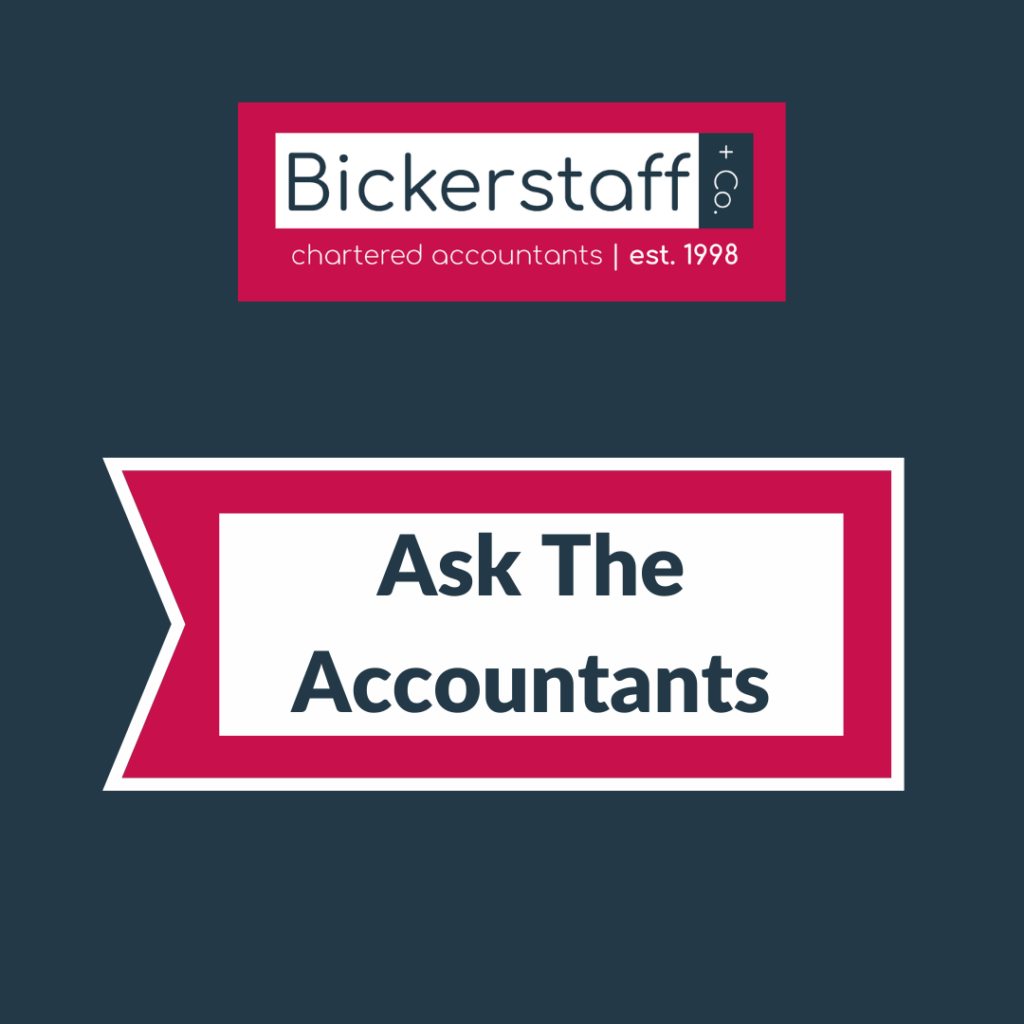

Welcome to our web series – Ask The Accountants.
This week we’re looking at something we’re often get queries about; Director’s Loan Accounts.
Join our MD Jenny as she explores the essential information you need to know, including possible tax liabilities using practical examples.
Prefer to read our advice? You’ll find a transcript of the video below…
“Hello! I’m Jenny, a director at Bickerstaff & Co, and I’m back with the latest episode of Ask the Accountants!
We’ve actually had a few messages about this week’s topic, so let’s dive straight into the exciting world of Director’s Loan Accounts!
Ok, so maybe you don’t feel it’s that exciting; perhaps it’s only accountants who get passionate about this sort of thing BUT Director’s Loan Accounts are an important part of the UK tax rules, so if you have a limited company, you should at least have a basic understanding of what’s involved.
We’ll try to make this as painless as possible!
Right, let’s start from the beginning. I’ll use my position here at Bickerstaffs as an example. So we’re a limited company, and as I said, I’m a director.
If I was to take any money out of the company bank account that wasn’t my salary, a dividend or an expense, and wasn’t money I had previously paid into or loaned the company, that would be classed as a Director’s Loan.
All activity relating to this Director’s Loan must be recorded in a Director’s Loan Account, or DLA. When we reach the end of our financial year, I would either owe the company money, or the company would owe me money.
We would record all of this as an asset or a liability in the balance sheet of our annual accounts.
Where this gets really important is the tax liabilities that could apply. If I owed the company money, that is to say my DLA is overdrawn when we reached our company year end, I may need to pay tax on it, but if I paid it all back within nine months and one day of the year end, then I won’t owe any tax.
Confused? Ok, so let’s say our year end was 30th April 2020, and I had an overdrawn DLA. If I paid back the director’s loan in full by the 1st February 2021, I wouldn’t own any tax on it.
If I didn’t do this, our company would have to pay an additional Corporation Tax and I could also be liable for personal tax at 32.5%, which isn’t repaid by HMRC.
This is why it’s super important to make sure that all activity in your Director’s Loan Account is carefully recorded and accounted for, and it’s definitely worth getting advice from an experienced, qualified accountant when it comes to more complex issues like this in order to avoid paying more tax than you need to.
There’s lots more information and regulation around Director’s Loan Accounts that we’d like to give you, but rather than spend hours putting it all together, why not get in touch with us so we can give you personalised advice and support.
You’ll find our contact details on our website – hope to see you again soon!”
